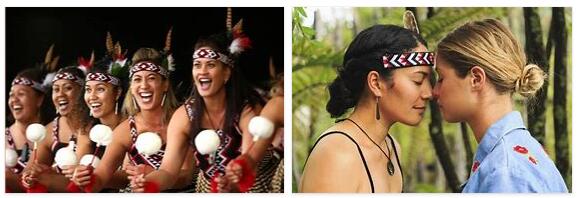New Zealand Culture
Indigenous traditions and influences of European and Asian ethnic groups merged into the multicultural society of New Zealand. The Māori language and culture have received sustained promotion since the 1970s and are now ubiquitous in the media and everyday life. Christian festivals as well as ANZAC Day and Waitangi Day are the most important holidays.… Read More »

